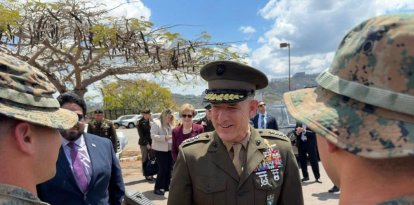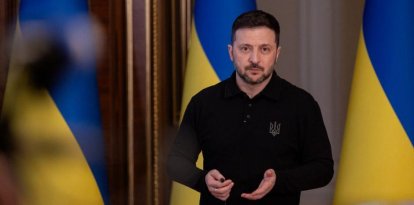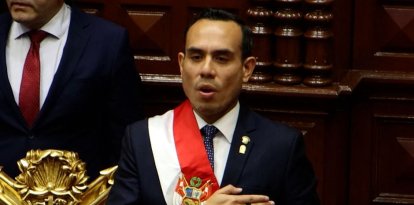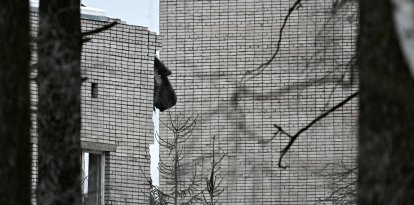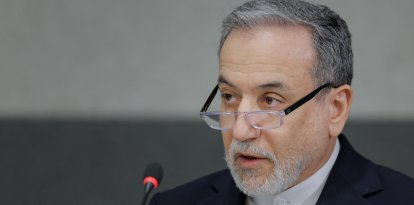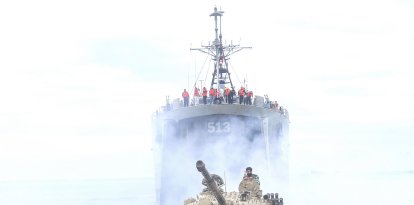Ceasefire between Israel and Hezbollah: Netanyahu warns he will strike if the terrorist group violates the agreement
The Israeli prime minister explained the reasons that led him to make the decision to move forward with a ceasefire and affirmed that his country will achieve all the objectives of the war.

Benjamin Netanyahu, prime minister of Israel.
The Israeli government on Tuesday approved the 60-day cease-fire agreement with the Lebanese terrorist group Hezbollah, which will take effect Wednesday morning.
In a video released before the Israeli Security Cabinet decided to move forward with the agreement, Prime Minister Benjamin Netanyahu said, "I promised victory, and we will achieve victory. We will complete the elimination of Hamas, we will bring back all hostages, we will ensure that Gaza is no longer a threat to Israel, and we will return the residents of the north to their homes safely," referring to the tens of thousands of Israeli citizens residing in the north of the country, near the border with Lebanon, who were forced to leave their homes due to Hezbollah missile attacks.
"The war will not end until we reach all our goals," the prime minister said. He added: "This will happen, just as it happened in the south. My friends, residents of the north, I am proud of you, of your resistance, and I am fully committed to your future."
"Hezbollah chose to attack us. A year has passed and it is no longer the same Hezbollah. We have set it back decades in time," Netanyahu maintained.
Netanyahu further remarked that Israel has eliminated "thousands of terrorists and destroyed underground infrastructure near our border that was in development for years. We struck strategic targets throughout Lebanon and brought down dozens of terror high-rises in Dahieh (a Hezbollah stronghold in the south of the country). Only three months ago, this all would have sounded like science fiction, but it's not. We did it."
"I am determined to provide our soldiers with all the necessary means to protect their lives and ensure our victory. That is why tonight I will present to the security cabinet the proposal for a ceasefire in Lebanon. With a full understanding with the United States, we have full freedom of military action. If Hezbollah violates the agreement, we will strike. If it launches a rocket or digs a tunnel, we will attack. We will respond forcefully to any violation," Netanyahu warned.
Regarding the reasons behind the agreement, the prime minister indicated that it is necessary to "focus on the Iranian threat, about which I will not go into details"; to renew and fully resupply Israeli forces, since there were delays in the supply of arms and ammunition; and to separate the fronts and isolate Hamas, since in this way, Netanyahu explained, the Palestinian terrorist group "will be alone in the conflict. The pressure will increase, and this will help in the holy mission of freeing the hostages."
"In the last year, we have turned the situation around. We were attacked on seven fronts and we responded with force. We are changing the face of the Middle East. We are doing all of this because of our brave soldiers, their steadfast resistance and determined, strategic management of the war. I have said it many times: a good agreement is an agreement that is enforced, and we will enforce it," Netanyahu concluded.
The Israeli leader also mentioned the other fronts with which Israel must contend: Iran, Hamas in the Gaza Strip, other terrorist groups in the West Bank, the Houthis in Yemen and pro-Iranian militias in Iraq.
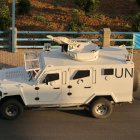
World
Hezbollah bribed UN personnel in Lebanon to facilitate its attacks on Israel
Leandro Fleischer
The 13 points of the agreement
The Israeli news portal Ynet listed the 13 points of the cease-fire agreement to be fulfilled by both sides:
Hezbollah and all terrorist organizations in Lebanon are to refrain from carrying out attacks against Israel.
Israel will not carry out any offensive military action against targets in Lebanon, whether by land, air or sea.
Israel and Lebanon recognize the importance of UN Security Council Resolution 1701, which calls for, among other things, the disarmament of terrorist groups and the withdrawal of Hezbollah north of the Litani River.
The commitments made do not affect the right of Israel and Lebanon to exercise their legitimate right to self-defense.
Only the security forces and the Lebanese army will be allowed to carry arms or deploy forces in southern Lebanon.
The sale, import and production of weapons or weapons-related materials in Lebanon will be under the supervision of the Lebanese government.
All unauthorized facilities for the production of arms and related materials will be dismantled.
All military infrastructures and bases will be dismantled, and any unauthorized armaments will be confiscated in accordance with the commitments of the agreement.
A joint committee agreed by Israel and Lebanon will be established to monitor and assist in the implementation of the commitments.
Israel and Lebanon will report any anticipated violations of the agreement to the committee and to the United Nations Interim Force in Lebanon(UNIFIL).
Lebanon will deploy its official security forces and army along the borders, at the crossings and on the country's defined southern line, according to the deployment plan.
Israel will gradually withdraw south of the blue line (the border between Lebanon and Israel) within 60 days.
The United States will work to promote indirect negotiations between Israel and Lebanon with the goal of reaching a long-term agreement.













